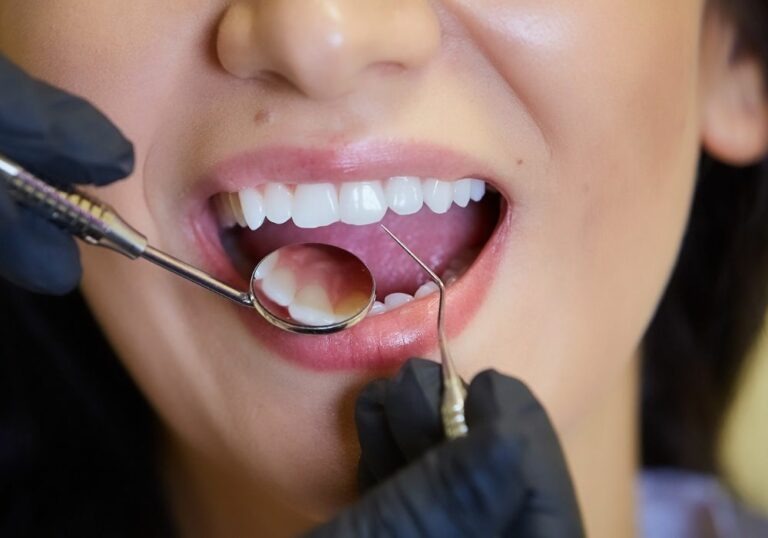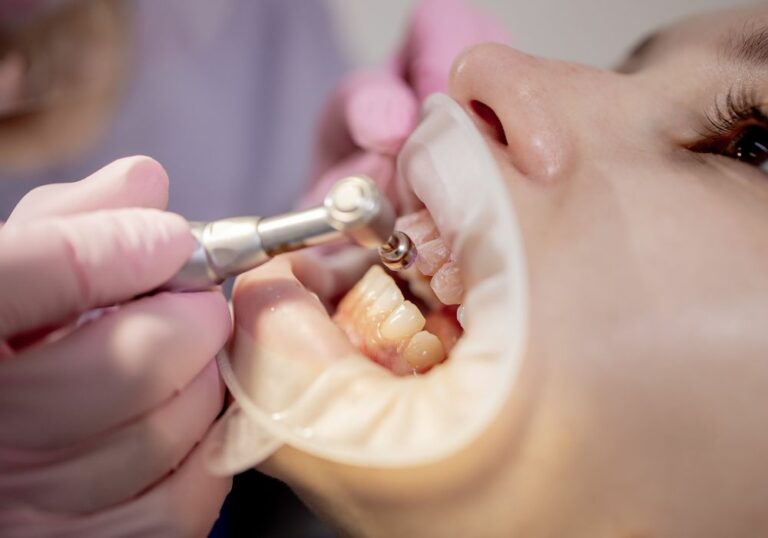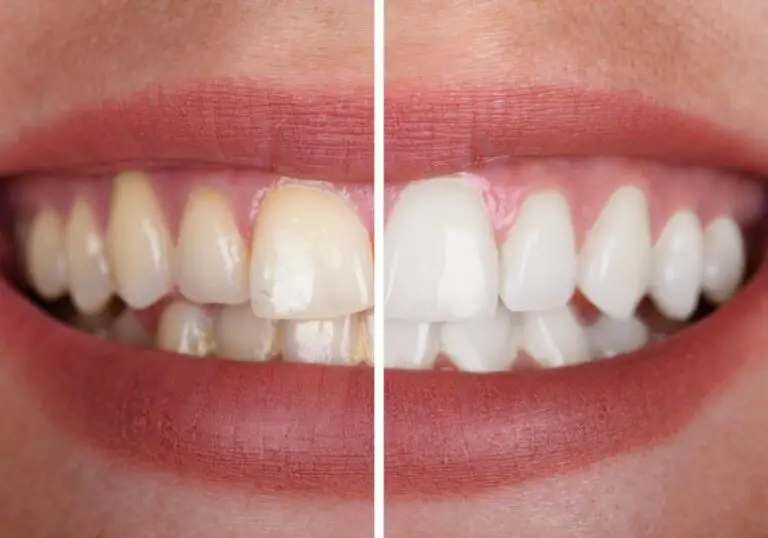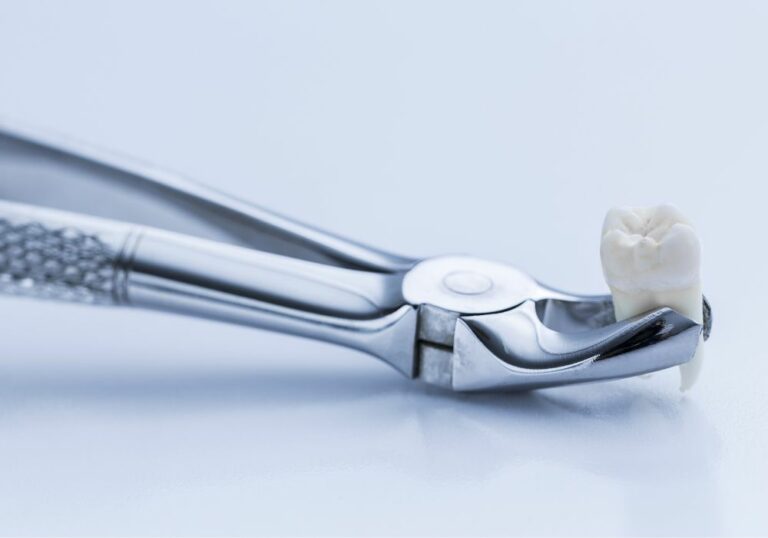Are you experiencing tooth nerve pain and wondering how to numb it at home? Tooth nerve pain can be excruciating and can interfere with your daily activities. There are several home remedies you can try to numb your tooth nerve and alleviate the pain.
One of the quickest and easiest ways to numb a painful tooth is to take an over-the-counter painkiller such as ibuprofen or acetaminophen. These painkillers can help alleviate the pain and reduce any swelling in the infected area. Another option is to rinse your mouth with warm saltwater, which can help reduce inflammation and kill oral germs.
In addition to these remedies, there are other home remedies you can try to numb your tooth nerve, such as applying a cold compress to the affected area or using clove oil. However, it’s important to note that these remedies may only provide temporary relief and it’s important to see a dentist if you’re experiencing persistent tooth nerve pain.
Understanding Tooth Nerve Pain

Tooth nerve pain can be excruciating and can affect your daily activities. Understanding the causes and symptoms of tooth nerve pain can help you manage the pain and prevent it from happening in the future.
The nerves in the teeth are located in the pulp, which is a bundle of nerves and blood vessels at the center of the tooth. Tooth nerve pain can be caused by various factors, including tooth decay, gum disease, cracked or broken teeth, and teeth grinding.
The pain from tooth nerve pain can be sharp, throbbing, or constant and can be triggered by certain foods and drinks. In some cases, tooth nerve pain can also cause sensitivity to hot or cold temperatures.
If you are experiencing tooth nerve pain, it is important to seek dental care as soon as possible. Ignoring the pain can lead to further damage to your teeth and gums, and can even result in tooth loss.
In addition to seeking dental care, there are several home remedies that can help alleviate tooth nerve pain. These include using over-the-counter pain relievers, applying a cold compress to the affected area, and rinsing your mouth with warm salt water.
It is important to note that while these remedies can provide temporary relief, they do not address the underlying cause of the pain. Therefore, it is essential to seek professional dental care to prevent further damage and ensure long-term relief from tooth nerve pain.
The Role of Oral Hygiene
Maintaining good oral hygiene is crucial to prevent tooth nerve pain. Brushing your teeth twice a day and flossing at least once a day can help remove plaque and food particles from your teeth and gums. Poor oral hygiene can lead to tooth decay, gum disease, and other dental problems that can cause tooth nerve pain.
When brushing your teeth, use a fluoride toothpaste and a soft-bristled toothbrush. Brush your teeth for at least two minutes, making sure to clean all surfaces of your teeth, including the front, back, and chewing surfaces. Don’t forget to brush your tongue to remove bacteria and freshen your breath.
Flossing is also an essential part of oral hygiene. It helps remove food particles and plaque that your toothbrush can’t reach. Use a piece of floss about 18 inches long and wrap it around your fingers. Gently slide the floss between your teeth and along the gum line, making sure to clean both sides of each tooth.
In addition to brushing and flossing, you can also use mouthwash to help kill bacteria and freshen your breath. Look for a mouthwash that contains fluoride to help strengthen your teeth and prevent tooth decay.
Lastly, make sure to visit your dentist regularly for checkups and cleanings. Your dentist can detect and treat dental problems before they become more serious and cause tooth nerve pain.
Home Remedies for Numbing Tooth Nerve

When you’re dealing with a painful tooth nerve, it can be hard to focus on anything else. Fortunately, there are several home remedies that can help numb the pain and provide relief. Here are a few options to consider:
Saltwater Rinse
One of the easiest and most effective home remedies for numbing a tooth nerve is a saltwater rinse. Simply mix a teaspoon of salt into a glass of warm water and swish it around your mouth for a few minutes. The salt will help reduce inflammation and kill bacteria, which can help alleviate pain.
Over-the-Counter Painkillers
Another option is to take an over-the-counter painkiller like ibuprofen or acetaminophen. These medications can help reduce pain and inflammation, making it easier to manage your tooth nerve pain.
Clove Oil
Clove oil is a natural remedy that has been used for centuries to relieve toothache pain. To use it, simply dab a small amount onto a cotton ball and apply it directly to the affected tooth. The oil contains eugenol, which has natural numbing properties that can help alleviate pain.
Ice Pack
If you’re dealing with swelling or inflammation around your tooth nerve, applying an ice pack can help provide relief. Simply wrap a bag of ice or a cold pack in a towel and hold it against your cheek near the affected tooth.
Peppermint Tea
Peppermint tea contains natural anti-inflammatory compounds that can help reduce swelling and alleviate pain. Simply steep a bag of peppermint tea in hot water for a few minutes, then allow it to cool slightly before swishing it around your mouth.
Conclusion
While these home remedies can be helpful for numbing your tooth nerve, it’s important to remember that they are not a substitute for professional dental care. If you’re experiencing severe pain or other symptoms, be sure to schedule an appointment with your dentist as soon as possible.
Using Over-the-Counter Products
If you’re looking for a quick and easy way to numb your tooth nerve at home, over-the-counter (OTC) products can be a good option. Here are some of the most common types of OTC products that can help relieve tooth pain:
Oral Gel
Oral gels, such as Orajel, can be applied directly to the affected tooth to help numb the area and provide temporary relief from pain. These gels usually contain benzocaine, which is a local anesthetic that works by blocking the nerve signals in the affected area.
To use an oral gel, simply apply a small amount to a cotton swab or your finger and rub it onto the affected tooth and surrounding gums. Be sure to follow the instructions on the label and avoid using too much, as this can cause numbness in other areas of your mouth.
Mouth Rinses
Mouth rinses, such as Listerine, can also be helpful in numbing the affected area and reducing pain. These rinses usually contain alcohol, which has a numbing effect on the nerves in your mouth.
To use a mouth rinse, simply swish a small amount around in your mouth for 30 seconds to 1 minute, then spit it out. Be sure to follow the instructions on the label and avoid swallowing the rinse.
Pain Relieving Tablets
Pain relieving tablets, such as ibuprofen or acetaminophen, can also be effective in reducing tooth pain and inflammation. These tablets work by blocking the production of certain chemicals in your body that cause pain and swelling.
To use pain relieving tablets, simply follow the instructions on the label and take the recommended dose. Be sure to avoid taking more than the recommended dose, as this can cause serious side effects.
Overall, OTC products can be a good option for numbing your tooth nerve at home. However, if your pain persists or becomes severe, be sure to see a dentist as soon as possible to determine the underlying cause and receive appropriate treatment.
When to Seek Professional Help

While there are several home remedies that can help alleviate tooth nerve pain, there are times when it is necessary to seek professional dental help. Here are a few signs that you should see a dentist:
- Severe pain: If your tooth nerve pain is severe and persistent, it is important to seek professional help. This could be a sign of a more serious dental issue that requires immediate attention.
- Swelling: If you notice swelling in your gums or face, it could be a sign of an infection. Infections can spread quickly and cause serious complications if left untreated.
- Fever: If you have a fever along with tooth nerve pain, it could be a sign of a systemic infection. This requires immediate medical attention.
- Difficulty eating or drinking: If your tooth nerve pain is making it difficult to eat or drink, it is important to see a dentist. This could be a sign of a serious dental issue that needs to be addressed.
- Numbness or tingling: If you experience numbness or tingling in your face or mouth along with tooth nerve pain, it could be a sign of nerve damage. This requires immediate attention from a dental professional.
Remember, while home remedies can provide temporary relief from tooth nerve pain, they are not a substitute for professional dental care. If you experience any of the above symptoms, it is important to seek help from a dentist as soon as possible.
Preventive Measures
Taking preventive measures can help you avoid tooth nerve pain in the first place. Here are some tips:
- Brush your teeth twice a day with fluoride toothpaste and floss daily. This helps remove plaque and prevent tooth decay.
- Use a mouthwash that contains fluoride to help prevent tooth decay.
- Limit sugary and acidic foods and drinks. These can erode tooth enamel and cause tooth decay.
- Drink plenty of water to help keep your mouth hydrated and wash away food particles and bacteria.
- Wear a mouthguard if you grind your teeth at night. Grinding can wear down tooth enamel and expose the nerves.
- Visit your dentist regularly for checkups and cleanings. Your dentist can detect and treat tooth decay and other dental problems before they become painful.
By following these preventive measures, you can reduce your risk of tooth nerve pain and maintain good oral health.
Potential Risks of Home Remedies
While home remedies can be a quick and easy solution to alleviate tooth nerve pain, it’s important to be aware of the potential risks involved. Some of the risks associated with home remedies include:
Irritation and Inflammation
Some home remedies, such as applying clove oil directly to the affected area, can cause irritation and inflammation if not used properly. It’s important to use these remedies in moderation and according to the instructions to avoid any adverse effects.
Allergic Reactions
Certain home remedies, like using essential oils or herbal supplements, can cause allergic reactions in some individuals. It’s important to test a small amount of the remedy on your skin before using it in your mouth to avoid any allergic reactions.
Delaying Proper Treatment
While home remedies can provide temporary relief, they shouldn’t be used as a substitute for proper dental treatment. Delaying treatment can lead to further complications and potentially more serious health issues.
Masking Underlying Issues
Using home remedies to numb tooth nerve pain can mask underlying dental issues, such as cavities or infections. It’s important to seek professional dental care to address the root cause of the pain and prevent further damage to your teeth and gums.
In summary, while home remedies can provide quick relief for tooth nerve pain, it’s important to be aware of the potential risks involved and to use them in moderation. It’s always best to seek professional dental care to address the root cause of the pain and prevent further complications.
Frequently Asked Questions
How can I relieve tooth pain at home?
To relieve tooth pain at home, you can try taking an over-the-counter painkiller like ibuprofen or acetaminophen. You can also try applying a cold compress to the affected area or rinsing your mouth with warm salt water. If the pain persists, it’s important to see a dentist.
What are some natural remedies for tooth pain?
Some natural remedies for tooth pain include clove oil, which can be applied directly to the affected tooth, and peppermint tea bags, which can be placed on the affected area. You can also try chewing on garlic or ginger root, which have natural anti-inflammatory properties.
What can I use to numb my tooth?
To numb your tooth, you can try using an over-the-counter oral numbing gel or spray. These products contain benzocaine, which can help to numb the affected area. However, it’s important to follow the instructions carefully and not overuse these products.
Does vanilla extract help with tooth pain?
While some people believe that vanilla extract can help to relieve tooth pain, there is no scientific evidence to support this claim. It’s best to stick to proven methods for relieving tooth pain, such as over-the-counter painkillers and cold compresses.
Can Listerine help with tooth pain?
Listerine can help to reduce inflammation and kill bacteria in the mouth, which can help to relieve tooth pain. However, it’s important to note that Listerine is not a substitute for proper dental care. If you are experiencing tooth pain, it’s important to see a dentist.
Is brake fluid safe to use for tooth pain?
No, brake fluid is not safe to use for tooth pain. Brake fluid is a toxic substance that can cause serious harm if ingested. It’s important to only use products that are specifically designed for oral use and to follow the instructions carefully.






